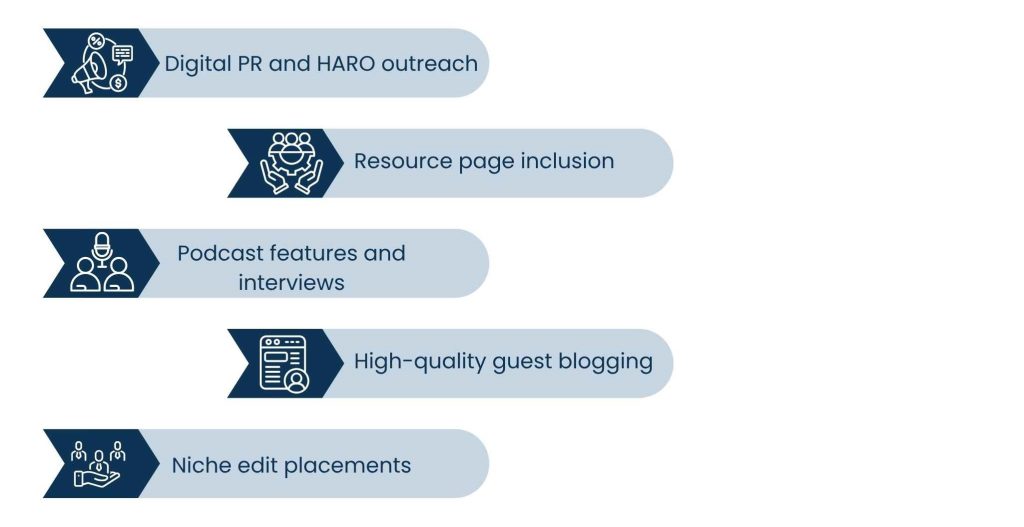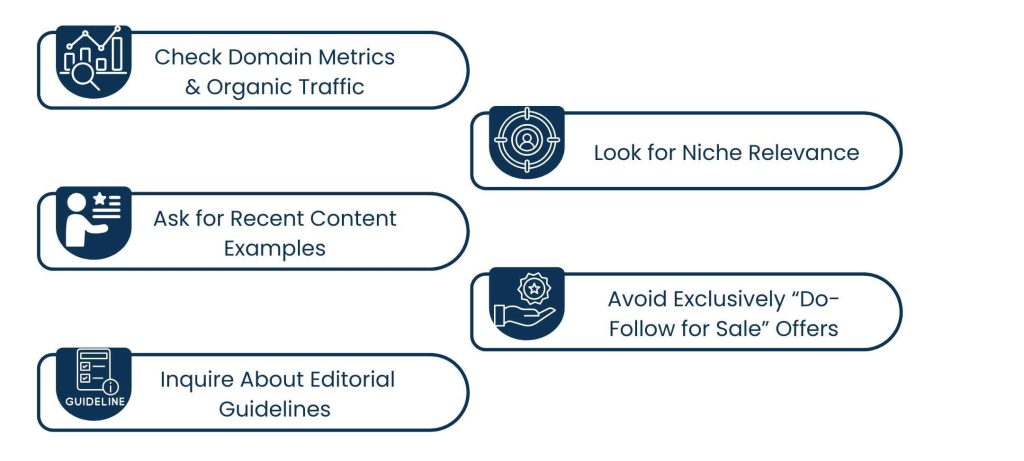Introduction
Are blog network services still relevant today? In 2025, that’s still one of the most debated questions in SEO circles and for good reason. Google’s algorithms have become far more advanced, with penalties for manipulative link-building tactics becoming harsher and more precise. That has led many to believe that blog networks have run their course.
But here’s the reality: blog network services haven’t vanished, they’ve matured. The spammy PBNs of the past have been replaced with well-curated, topic-relevant blog networks that focus on quality content and real engagement. These aren’t just link farms, they’re structured communities of niche blogs that publish editorially reviewed, value-driven articles.
Modern blog network services now serve as strategic distribution channels for brands to gain contextual backlinks, improve domain authority, and reach relevant audiences. Their construction and application differ. They become an important component of the current link-building toolset, particularly for companies looking to gain SEO momentum quickly, without compromising long-term credibility. Especially when used with high-quality content, natural anchor text, and niche relevance.
How Blog Network Services Have Evolved?

1. From Private to Public & Curated Networks:
The old days of anonymous, thin-content sites are mostly gone. Today’s top blog networks are made up of real websites with consistent traffic and engagement. They operate transparently and prioritize quality.
2. Editorial Control Is Now the Norm:
Instead of publishing anything and everything, networks have tighter editorial standards. Posts must be original, relevant, and genuinely useful, which helps both rankings and user trust.
3. Focus on Niche Relevance Over Quantity:
It’s not about how many backlinks you can get. It’s about where they come from. Modern blog networks group sites by industry, making it easier to build backlinks that influence authority.
4. Integration with Outreach Campaigns:
Today’s services often blend blog network access with manual outreach to widen link diversity. You’re not just using a closed system — you’re gaining hybrid access to owned and earned placements.
Where Blog Network Services Fit in Modern Link-Building?
Spammy link-building is one of the misleading SEO tactics that Google strongly prohibits. But it is important to understand that there are differences among blog network services. When used with openness, editorial integrity, and content value, blog networks can still be strategically important in an ethical link-building strategy.
Services for blog networks are particularly helpful when paired with other contemporary tactics. They can serve as a supporting channel to increase backlink diversity, drive niche relevance, and build domain authority faster.

Here’s how they fit into today’s more holistic SEO approach:
1. Digital PR and HARO outreach
These tactics involve getting featured in media outlets or expert roundup articles. Blog networks can complement this by helping build backlinks on niche-specific blogs while PR efforts secure broader visibility.
2. Resource page inclusion
Getting listed on “best tools” or “recommended resources” pages is powerful. Blog networks add another layer by offering anchor text control and relevance in a blog format.
3. Podcast features and interviews
Appearing on podcasts builds authority and trust. Blog networks can then help reinforce these personal brand signals by linking to your episodes or related landing pages.
4. High-quality guest blogging
Manual guest posting takes time and effort. Blog network services offer scalable opportunities to publish guest-style articles on vetted blogs, but without cold outreach.
5. Niche edit placements
Also known as contextual link insertions, niche edits involve placing links within existing articles. Blog networks that offer this (ethically) can help diversify anchor text profiles and improve contextual signals.
When used responsibly, blog networks help brands scale link acquisition without sacrificing quality.
They’re particularly helpful for:
- Startups that lack brand recognition.
- Agencies managing multiple client niches.
- Businesses in competitive verticals need consistent authority growth.
Blog networks are an additional tool in a comprehensive link-building plan and not a quick fix. They still offer measurable SEO value in 2025 when compared to partnerships, earned media, and high-quality content.
Diversified SEO Strategy For Blog Networks
Relying only on one strategy for outreach, PR, or blog networks might be dangerous. Diversity is a value that Google’s algorithm places on your backlink profile. Blog network services should complement a broader strategy rather than replace it.

Here’s how blog networks fit into a balanced, diversified SEO approach:
1. Support for Digital PR Campaigns
Blog networks can cover the void by providing consistent, niche-relevant backlinks, even though digital PR obtains high-authority backlinks from prominent sources. You can expand your link profile’s reach and depth with this combination.
2. Extension of Organic Guest Posting
Manual guest blogging can be unexpected and time-consuming. Blog networks provide a more regulated means of disseminating comparable high-quality content at scale while preserving editorial relevance.
3. Support for Pillar Pages and Content Hubs
By using blog networks to provide contextual backlinks to your comprehensive guide or resource, you may increase its authority and SERP rankings more quickly.
4. Anchor Text Variety and Link Velocity Control
Relying only on earned backlinks can create uneven anchor text distribution. Blog networks allow you to balance branded, partial-match, and long-tail anchors intentionally, giving you greater control over your link-building patterns.
5. Support for Seasonal or Promotional SEO Pushes
Need to boost a campaign quickly for a product launch or limited-time offer? Blog networks provide a fast, scalable way to drive relevant backlinks that support short-term goals without waiting months for PR coverage.
6. Internal Link Amplification
If your blog network content includes links to inner pages — not just your homepage — it spreads authority deeper into your site, helping underperforming or strategic URLs gain traction.
The real value of blog network services comes when they’re used as part of a multi-channel link-building strategy. Diversification not only improves SEO results but also builds long-term stability. Should Google devalue one source, your entire backlink strategy won’t collapse — because it’s built on variety, relevance, and quality from multiple directions.
When NOT to Use a Blog Network?
Blog network services aren’t always the best option for every company, niche, or campaign, even while they can provide powerful support for SEO growth. Using them in some circumstances could be more detrimental than beneficial, particularly if public impression, compliance, or trust are high considerations.

Here are cases where you should think twice before using a blog network:
1. Industries With High Regulatory Scrutiny
If you’re in finance, healthcare, legal, or government niches, backlink sources are even more important. Google demands ultra-high credibility for websites in these niches. One sketchy backlink can penalize your site or break compliance rules.
2. Brands That Trust and Reputation Are More Important Than Speed
If you’re aiming to create strong, long-term trust, such as in B2B consulting, enterprise SaaS, or wellness coaching, using blog networks may feel too “transactional.” You might be better off with digital PR and relationship-driven link-building.
3. Early-Stage Startups Lacking a Well-Developed Brand Voice
When your brand is in progress, it’s vital that all public content you produce speaks to your message explicitly. In blog networks, you have less control over creativity, which may water down your voice or introduce inconsistency.
4. Websites With a History of Manual Actions or Penalties
If your domain has been penalized in the past for unnatural links, blog networks — even high-quality ones — may not be worth the risk. It’s better to rebuild trust slowly with organic backlinks and Google-safe strategies.
5. E-commerce Brands in Competitive Spaces Using Only Blog Networks
Over-dependence on any single strategy, such as blog networks, is going to expose your rankings to danger. Online shopping SEO calls for a well-rounded approach that includes PR-backed backlinks, influencer mentions, customer reviews, and content marketing.
6. Reputation-Sensitive Campaigns
Campaigns such as fundraising, nonprofit, and political undergo public and media scrutiny. Any perception of unintentional SEO manipulation impacts the credits negatively.
Blog networks are a tool and not a solution for every problem. If your brand or industry calls for a secure and cautious approach, invest in earned media such as high-quality partnerships and long-term SEO content strategies instead. It’s not about avoiding blog networks altogether — it’s about knowing when to opt out.
How to Choose a Reliable Blog Network Service in 2025?
Not all blog network services are created equal. Selecting blog networks that put quality, transparency, and long-term value first is crucial in 2025. While some of them might significantly improve your website’s search engine rankings, low DA sites may impose your site to penalty and a spammy reputation.

Here’s what to look for when evaluating a blog network service:
1. Check Domain Metrics & Organic Traffic
A link from a professional blog with no traffic or low domain authority doesn’t help much. Use tools like Ahrefs or SEMrush to verify a site in the network is indexed, ranks for keywords, and receives organic traffic. It shows Google isn’t valuing it much if it’s not being visible.
2. Ask for Recent Content Examples
Review previously published posts. Are they well-written, relevant, and useful? Or are they stuffed with awkward links and off-topic content? Good networks will proudly present their published work.
3. Inquire About Editorial Guidelines
Reputable blog networks have internal editors who review submissions before publication. They look for grammar, structure, and alignment of the post with the site’s tone and audience. If a service says, “We publish everything,” that’s a red flag.
4. Look for Niche Relevance
A backlink from a parenting blog doesn’t help if your business sells cybersecurity software. Make sure the network includes blogs that are actually relevant to your industry or niche. The more contextually aligned the link, the better it will perform.
5. Avoid Exclusively “Do-Follow for Sale” Offers
Networks that sell do-follow links without any editorial process or disclosure are walking into Google penalty territory. Focus on networks that publish content for value and relevance where the link is a byproduct of good content, not the entire transaction.
By evaluating these factors, you can find blog network services that enhance your SEO rather than risking it. In 2025, smart selection is everything because quality links are still king, but Google’s watching more closely than ever.
Conclusion: Blog Network Services in 2025 - Still Standing, But Smarter
Blog network services are still relevant in 2025, but only when used wisely. The low-effort, spammy link-building days of anonymous networks are behind us. To meet Google’s evolving standards, blog networks today operate with strong editorial control, relevant niches, with highly focus on quality content.
Blog networks, especially for businesses, agencies, and niche companies, can be a good way to get contextual backlinks, improve your SEO strategy, and increase domain authority. Companies should select networks with care, emphasize quality over quantity, and make certain each link is gained through content that benefits the reader for real value without penalty risk.
If your SEO strategy is based on long-term relevance, trust, and visibility, blog network services can still have a place — but not center stage. They’re like part of a larger, balanced blend. Because in 2025, smart SEO isn’t about tricking search engines, it’s about building authority the right way.
About Us
Tasks Expert offers top-tier virtual assistant services from highly skilled professionals based in India. Our VAs handle a wide range of tasks, from part time personal assistant to specialized services like remote it support services, professional bookkeeping service etc. Furthermore, it helps businesses worldwide streamline operations and boost productivity.
Ready to elevate your business? Book a Call and let Tasks Expert take care of the rest.









